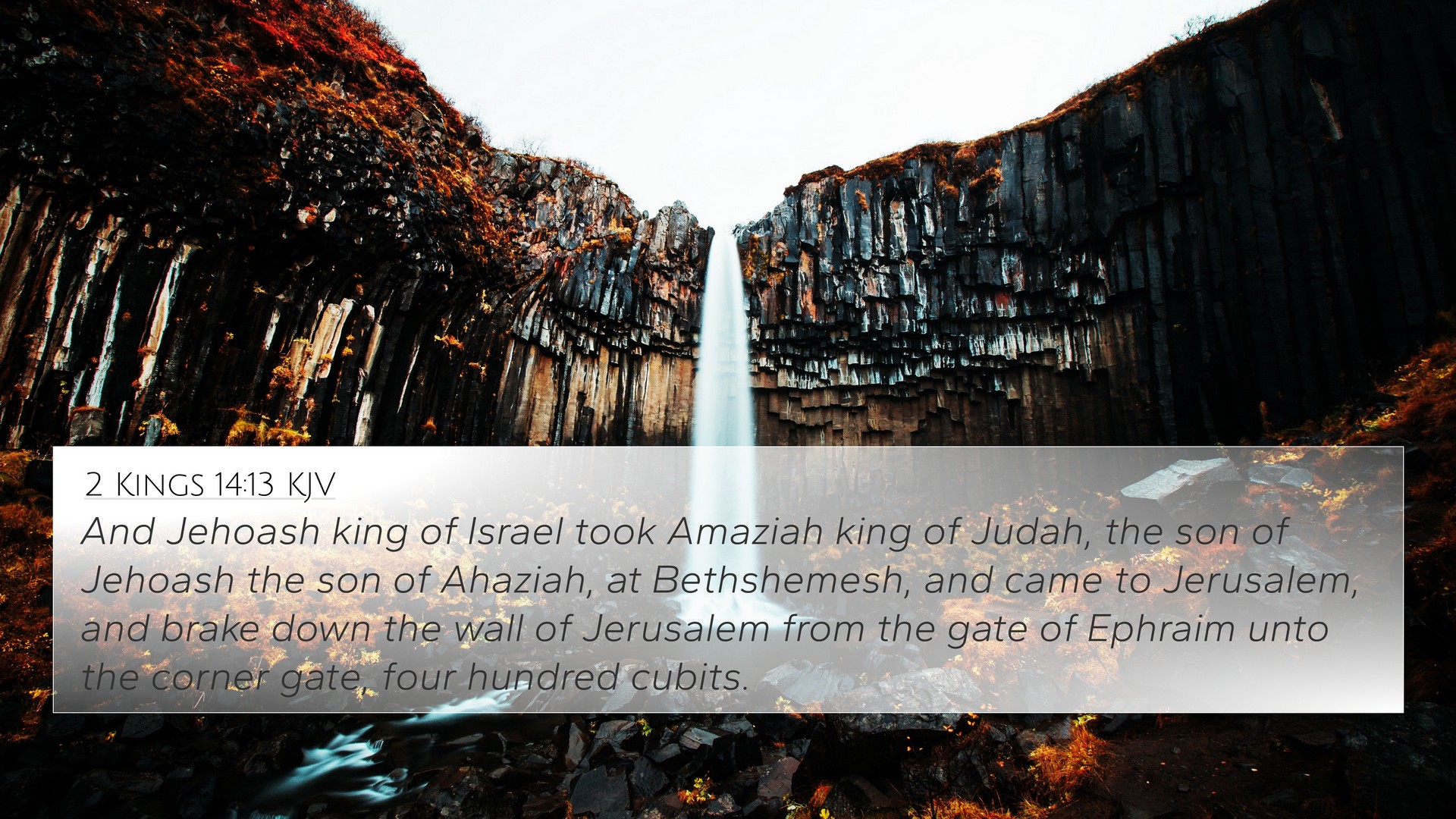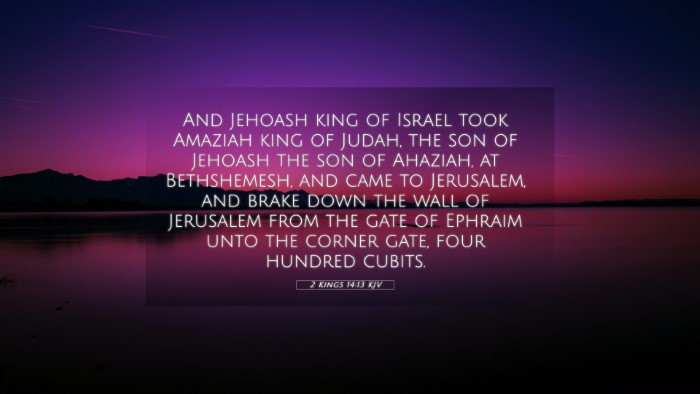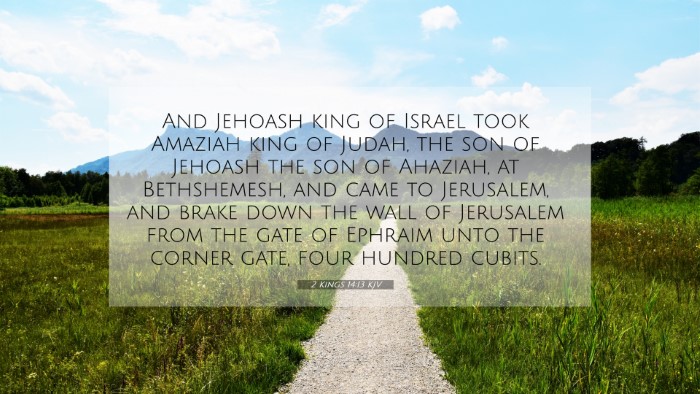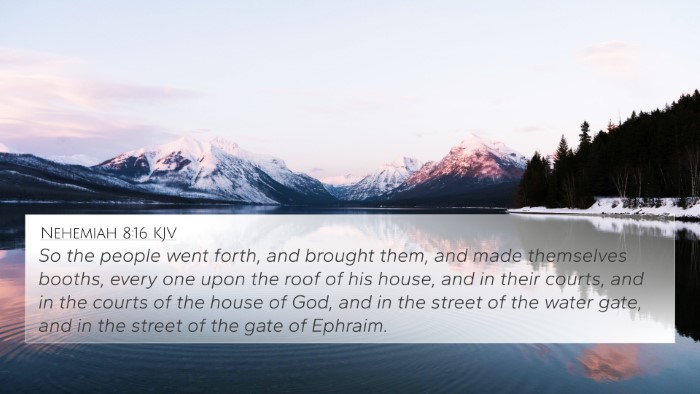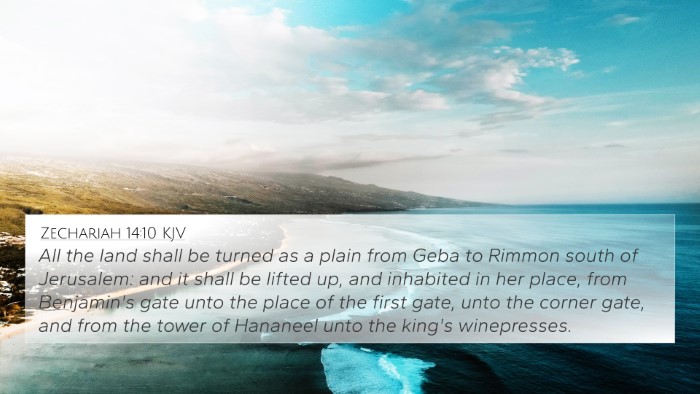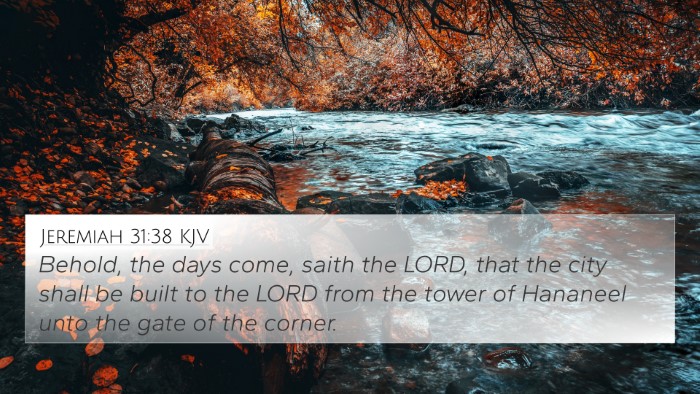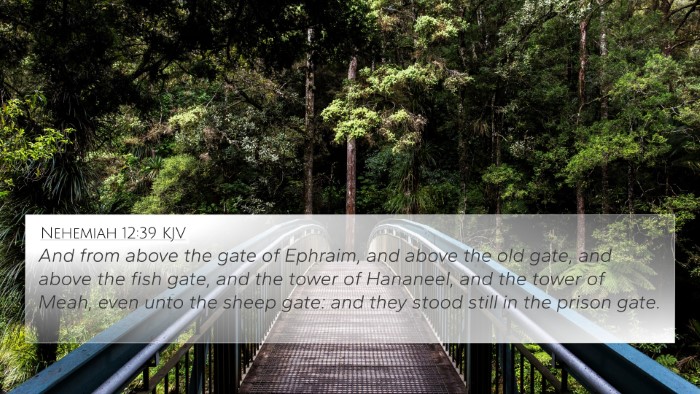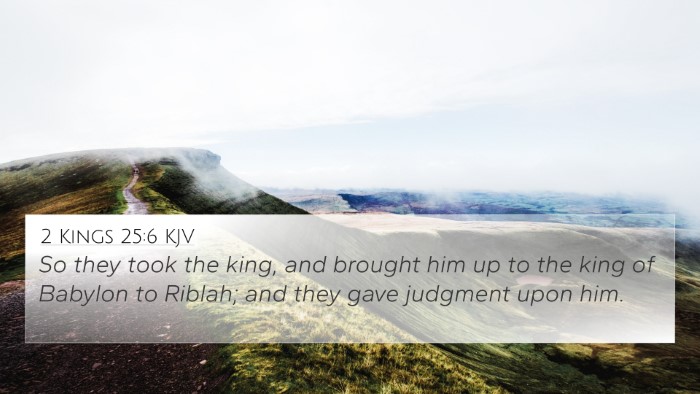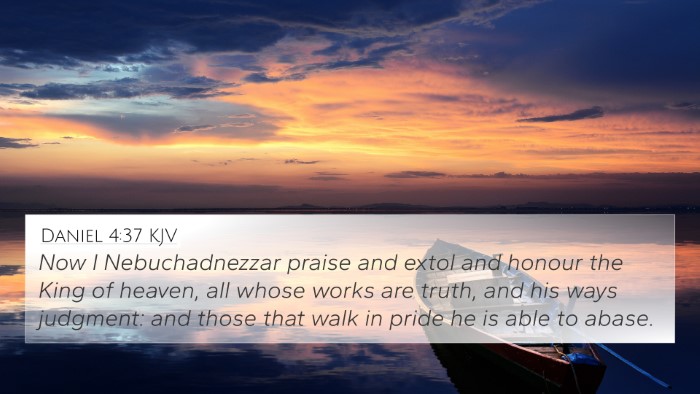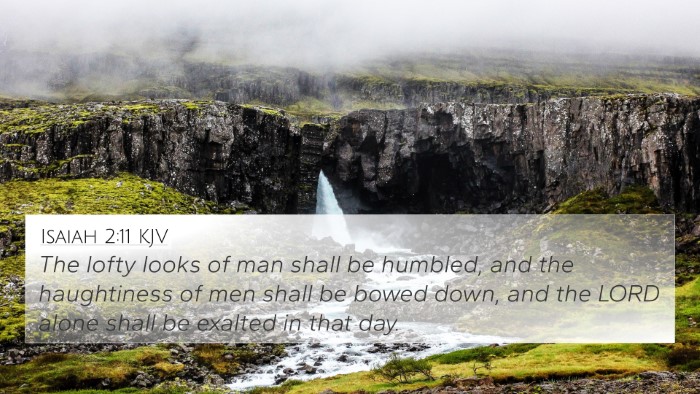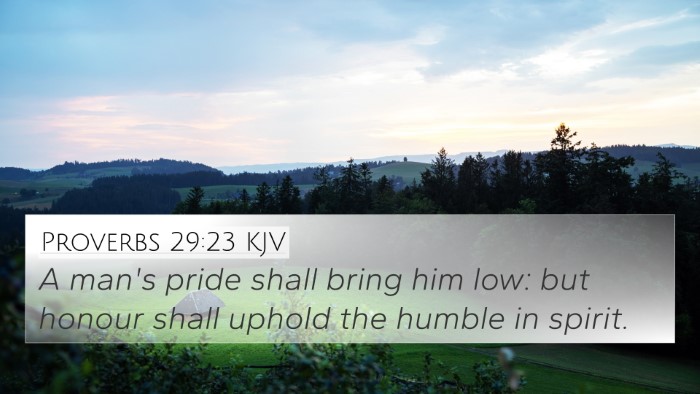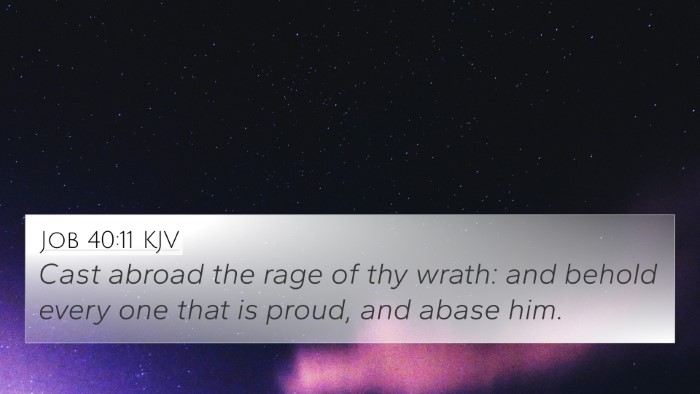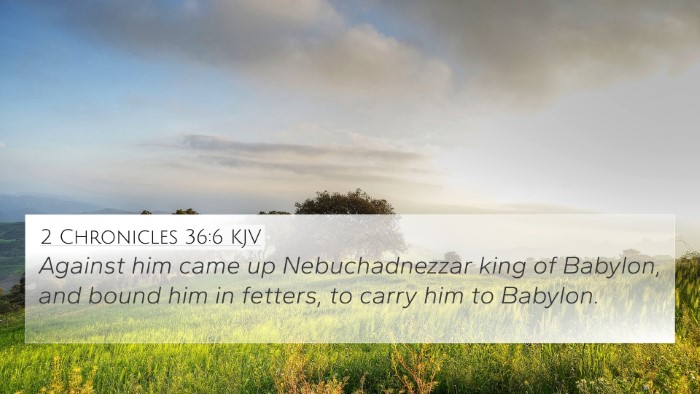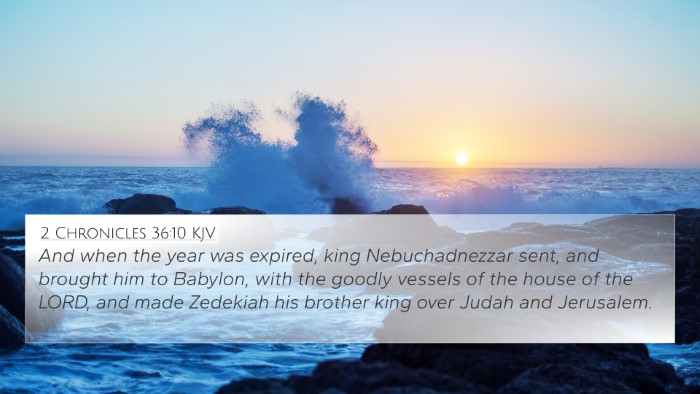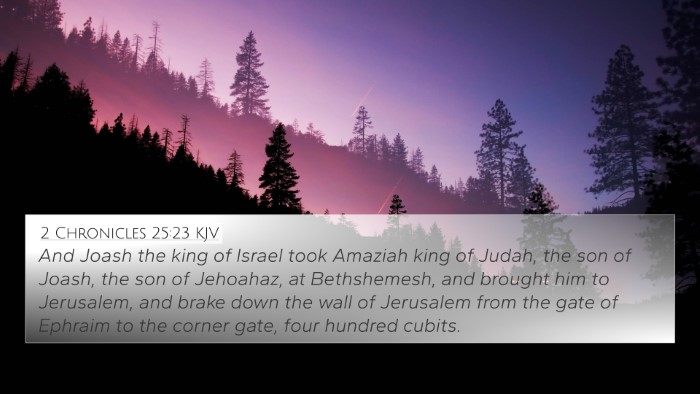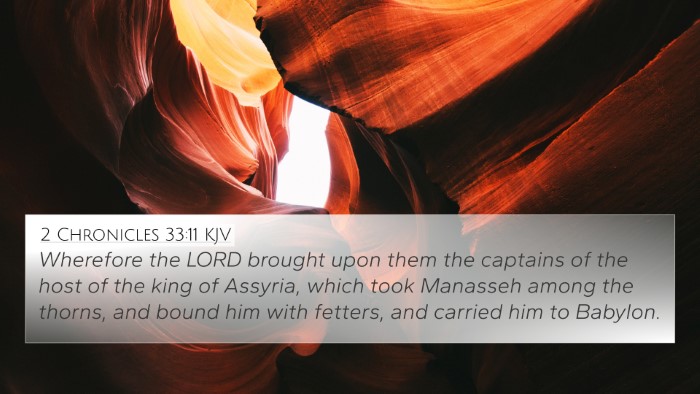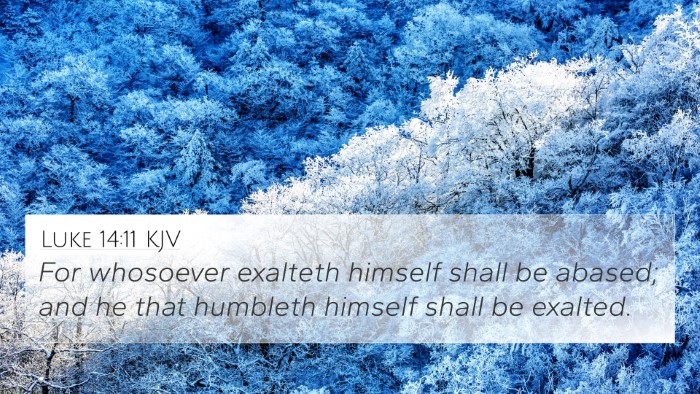Understanding 2 Kings 14:13
Verse (2 Kings 14:13): "And Jehoash king of Israel took Amaziah king of Judah, the son of Joash, the son of Jehoahaz, at Bethshemesh, and came to Jerusalem, and brake down the wall of Jerusalem from the gate of Ephraim unto the corner gate, four hundred cubits."
Summary of the Verse
This verse describes a military conflict where Jehoash, the king of Israel, captures Amaziah, the king of Judah, and demonstrates the power dynamics between the two kingdoms during this period. The destruction of Jerusalem’s wall symbolizes both military victory and significant loss for Judah.
Commentary Insights
Matthew Henry's Commentary
Matthew Henry emphasizes the futility of human pride and the consequences of straying from obedience to God. Jehoash's victory illustrates how God can use a wicked king as an instrument to punish His people for their idolatry and disobedience. Henry also reflects on the physical and spiritual ramifications of such conflicts, highlighting the importance of seeking God’s favor.
Albert Barnes' Notes on the Bible
Barnes provides additional context about the historical backdrop of this confrontation. He discusses the deterioration of relationships between Israel and Judah and how previous animosities culminated in this battle. The scripture illustrates the cyclical nature of conflict and how it reflects the disobedience and failures of both kings. Barnes also points out the physical damage inflicted on Jerusalem, symbolizing deeper spiritual consequences for the children of God.
Adam Clarke's Commentary
Clarke focuses on the implications of the wall’s destruction, suggesting the vulnerability of Jerusalem as a consequence of internal strife and neglect of God’s commandments. He advocates for the need to recognize the significance of spiritual warfare in relation to worldly events. Clarke mentions how the tearing down of the wall serves as a physical metaphor for broken relationships among God's people.
Bible Verse Cross-References
To better understand this verse, we can explore related verses that create a contextual tapestry. Here are some notable cross-references:
- 2 Kings 12:17-18: Describes prior conflicts between Jehoash of Israel and bad kings of Judah.
- Isaiah 1:7: Speaks of the devastation of the land, relating to the consequences of sin.
- Micah 5:1: Refers to sieges of Jerusalem and the vulnerability of God's people.
- 2 Chronicles 25:23: Contains the same story with additional details about the defeat.
- 2 Kings 14:8: Discusses Amaziah's initial challenge to Jehoash preceding this conflict.
- Amos 1:4: Reflects on the judgment of Israel's adversaries that reflects the moral state of the nation.
- Matthew 24:2: Jesus prophesies the destruction of Jerusalem's walls, echoing the historical events found in 2 Kings.
- Jeremiah 4:10: A lamentation on Jerusalem’s fate that highlights the consequences of turning away from God.
- Ezekiel 22:30: Speaks of God seeking a man to stand in the gap for Jerusalem, emphasizing the need for intercession amid judgment.
- Psalms 79:1: A prayer reflecting on the desolation of Jerusalem, paralleling the destruction in 2 Kings.
Thematic Connections and Interpretations
The verse offers profound insights into the themes of power, conflict, and divine sovereignty. The destructive actions of Jehoash reveal the transient nature of human authority as they unfold within God’s overarching plan, which is both just and redemptive.
Practical Reflections
For today’s believers, reflecting on this verse can encourage humility, reliance on God, and the importance of maintaining faithfulness amid trials. It serves as a reminder that our adherence to divine commands affects not just personal wellbeing but also communal integrity.
Cross-Referencing Tools for Deeper Study
Utilizing tools for Bible cross-referencing can enhance comprehension and thematic exploration:
- Tools for Bible cross-referencing such as concordances can help identify keywords and related themes.
- Exploring a Bible cross-reference guide allows for a systematic approach to scriptural study.
- Engaging in cross-reference Bible study can yield comprehensive insights into biblical interconnections.
- Using cross-reference systems effectively can streamline comparative studies between related verses.
- Applying inter-Biblical dialogue principles opens avenues for deeper engagement with scripture.
Conclusion
2 Kings 14:13 serves as a significant reminder of the historical challenges faced by the kings of Israel and Judah. Through the integration of biblical commentaries and rigorous cross-referencing of related scriptures, we gain a holistic understanding of the spiritual implications of this conflict. Believers are encouraged to study these connections to appreciate the continuity of themes throughout scripture, reinforcing the enduring relevance of biblical narratives.
